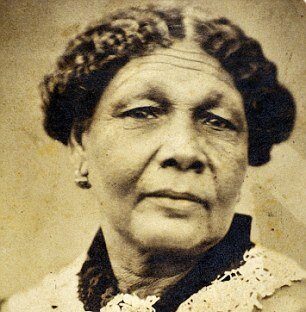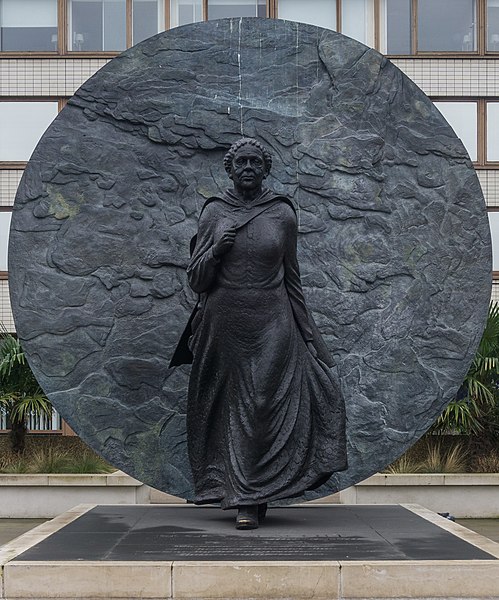In the autumn of 1853, a major military conflict broke out in Europe and spread across the globe, claiming over 600,000 lives along the way. This was the infamous Crimean War, and it was this historical period that brought our attention to the life and legacy of Mary Seacole – the British-Jamaican nurse and businesswoman who cared for hundreds of British soldiers throughout her career and was a pioneer in modern nursing.

Journey From Jamaica
Seacole’s story starts in Kingston, Jamaica, where she was born to her Jamaican mother and Scottish father. Her mother ran Blundell Hall – a lodging house – but was mostly known as a doctor who nursed many people on the island back to health using natural remedies. As a child, Seacole was keen to get involved in her mother’s practice and would often attempt to learn on her toys, as she mentions in her autobiography:
“I was very young when I began to make use of the little knowledge, I had acquired from watching my mother, upon great sufferer – my doll… and whatever disease was most prevalent in Kingston, be sure my poor doll soon contracted it.”
She soon learnt to dress wounds and use natural remedies herself and began her journey in healthcare by helping her mother with both the lodging house and nursing. Soon after, she began to travel – first across the Caribbean, then to London in 1823 before returning to Kingston, Jamaica in 1826. Come 1850, she was nursing her first cholera patient using mustard emetics, warm clothes, and mercury chloride. Unknowingly to Seacole, this was the start of an outbreak of cholera across Jamaica, where she would nurse as many as she could through an epidemic that killed 40,000.
Business Brain
Aside from nursing, Seacole was very involved in business. During her first few travels to England, she would take jams and pickles from Jamaica to sell there in order to make a living. Throughout her time in Panama, she ran a boarding house whilst also selling supplies to travellers. She went on to use her owned properties in Jamaica and Panama, as well as her gold investments, to fund her travels to Britain in 1854.
By 1854, the Crimean War had broken out and injured and sick soldiers were in dire need of aid. With the help of Thomas Day – a relative of her husband – Seacole established the British Hotel as a place of recovery and healing for sick officers. Here, she sold hot drinks and medicine to soldiers, and dedicated herself to nursing those that were wounded back to health. As a result, she was dubbed ‘Mother Seacole’ for her endless sacrifice and care. Due to her proximity to the war front, she would even nurse the wounded on the battlefield, showcasing her courage and dedication to caring for others. She continued this until the end of the Crimean War in 1856.
Obstacles and Challenges
Seacole faced a number of personal and institutional challenges in her lifetime. In 1844, she was left heartbroken, by the death of her husband who has been sick for many years and passed 8 years after their marriage. Her grief was heightened by the death of her mother soon after. History notes that she was devastated by these deaths, and although this could have stopped her, she went on to reach new heights in her career in the years to come.
As expected for the times, Seacole experienced racism when she arrived in England. Her offers to aid in the nursing of soldiers were rejected by many government departments including the War Office. She believed this was due to her race. Nonetheless, she went on to nurse soldiers by setting up her own camp known as “the British Hotel”, which later led to her praises being sung for all she did there. But despite the recognition of her work, Seacole could not escape the racial prejudice that followed her.
At a goodbye party before her travels to Gorgona Island, the speeches made to thank Seacole for her help were followed by comments of how unfortunate it was that she was not white as it would have made her more acceptable. Outraged, Seacole let it be known that even if she has a darker complexion, she “should have been just as happy and just as useful, and as much respected by those whose respect (she) value(s)”.
Lost and Found
There was also the overshadowing of Seacole’s story for a very similar one – that of Florence Nightingale. Much like Seacole, Nightingale is famously known for a founder of modern-day nursing as she drew attention to the importance of sanitation in hospitals and made medical environments safer. Although her work was key to the development of nursing, it is important to understand that Nightingale and Seacole played two vital but very different roles in the Crimean War.
Seacole died in London in 1881. Unfortunately, her legacy was lost in history and figures like Nightingale were celebrated as heroes of the Crimean war instead. For almost 100 years, Seacole’s story was forgotten. It was only when Caribbean nurses in the 70s began to visit her grave in London that her story was resurrected. Since then, the local MP – Lord Clive Soley – began to raise money for a statue of Seacole. This statue was finished in 2016 and can be found on the grounds of St. Thomas’ Hospital. As her influence gained more recognition, Seacole was even voted the Greatest Black Briton in 2004.
Though it took a lot longer than it should have. Mary Seacole has finally become a renowned Black British figure and has the recognition she deserves.
 Sumit Surai, CC BY-SA 4.0
Sumit Surai, CC BY-SA 4.0 Seacole’s Legacy
Like many of the greats before us, Mary Seacole’s journey was not an easy one. Despite the numerous obstacles that stood in her way, Seacole’s drive, and resilience set her apart from others who would have been disheartened by the challenges she faced. She was not only a nurse, but an intuitive in herbal medicine as well as an ambitious entrepreneur. What set her apart even more was that her entrepreneurial skills weren’t used for personal wealth or success. But instead enabled her to fulfil her innate need to share her gift of caring for others. She accomplished astonishing things for a mixed-race woman of her time. Reflecting on her life highlights and her consistent strive for greatness – can only be described as inspirational.
To learn more about Mary Seacole and her values become a member of the Mary Seacole Trust. Keep up to date with their initiatives and help her legacy live on.

